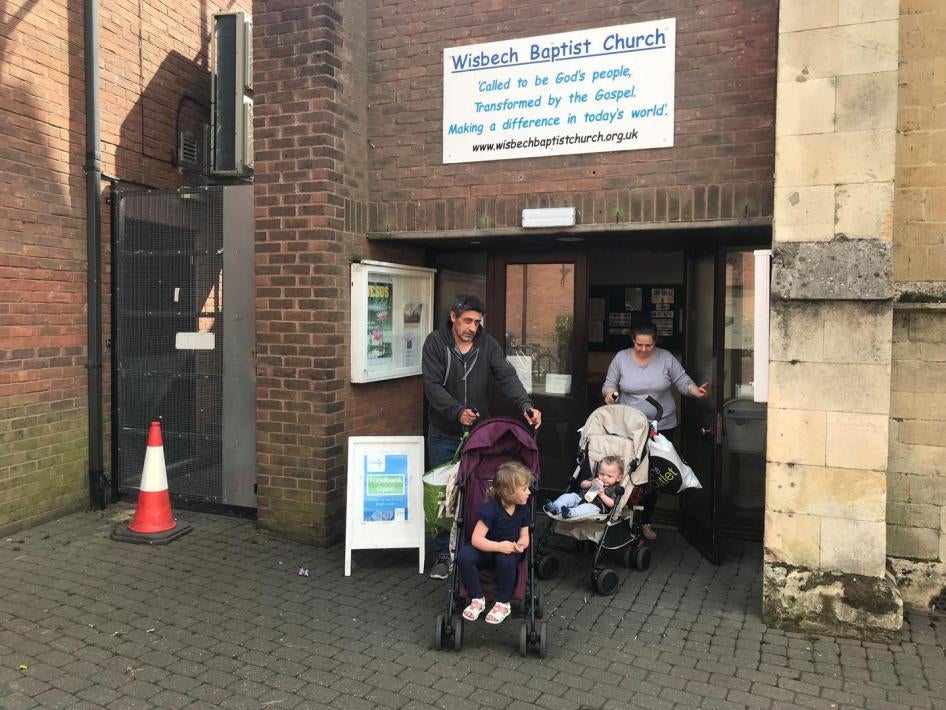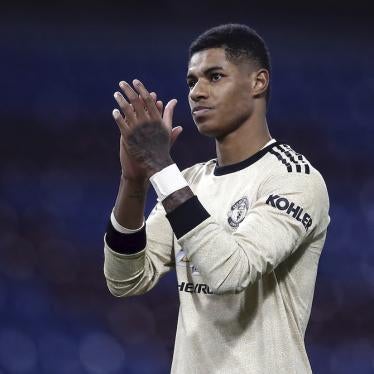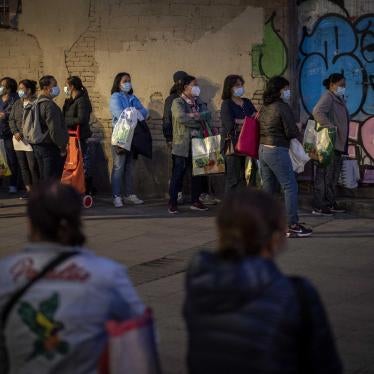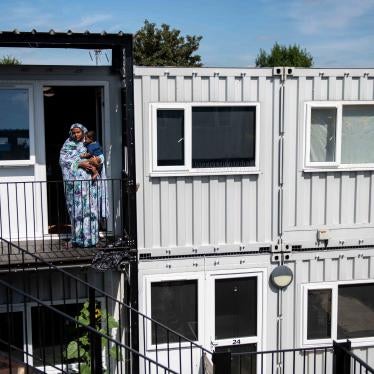Over the past year, as the Covid-19 pandemic has set in and schools closed, I’ve spoken to some amazing people who are working to protect children’s rights in the United Kingdom.
Katie Barry, a primary school headteacher in Lincolnshire, told me in May how she and her colleagues had to stay up in front of their computers into the early hours on weekends and holidays to navigate a deeply flawed government voucher scheme which is supposed to provide meals to children from low-income families. Joyce Leggate, at Kirkcaldy foodbank, explained in April how she and other volunteers were shocked to be giving out twice as many food parcels to families as they had the previous year. And Judith Gregory, a local authority catering manager in Cardiff, told me how she devised a novel method to send cash to low-income families through an online portal parents normally use to pay for extracurricular activities, so they could afford food when school doors shut in March.
An inspiring child-led campaign, brought to public attention by England men’s footballer Marcus Rashford, highlighted shocking levels of child food poverty in the UK – a country with the world’s fifth largest economy – and forced the government into successive policy U-turns on free meals.
The work of thousands of people on the frontlines, like Katie, Joyce, and Judith, to address a fundamental human rights failure – children from poorer families being denied their right to food – has exposed the tip of the iceberg of child poverty.
The need for food parcels, meal vouchers, and cash grants, campaigns to ensure year-round access to breakfast clubs and hot lunches, and calls to remove for good the “No Recourse to Public Funds” (NRPF) immigration restriction on some children accessing free school meals, all reflect the reality of growing child poverty.
Official statistics from March 2019 showed that the number of children in absolute poverty had risen to 3.7 million, up by 200,000 in 12 months. It is sobering to contemplate what will look like in March 2021, a year after the pandemic first began to cause a devastating economic downturn. It is even more harrowing to think beyond the numbers, to consider the human toll on the lives and rights of children in low-income families.
Human Rights Watch’s analysis of government data has exposed how austerity-motivated financial decision-making between 2010 and 2018 halved state expenditure (as a proportion of GDP) on welfare support for children and families. This is no accident. It points to bad policy that is harming the country’s most socioeconomically vulnerable children.
This is why we welcomed the Equality and Human Rights Commission’s (EHRC) submission to the United Nations, published on World Children’s Day, for the upcoming review of the UK’s record on children’s rights, which will examine poverty and living standards alongside other children’s rights concerns.
Human Rights Watch has also today made a submission to the United Nations Committee on the Rights of the Child, highlighting several other aspects of child poverty, including the regressive “two-child limit” on welfare payments, the impact on access to education for children with disabilities, and children without reliable internet or electronic devices, and NRPF status acting as a barrier to free school meals. The Human Rights Watch submission also raises concerns about unaccompanied migrant and asylum-seeking children, weapons sales to the Saudi-led coalition, funding for refugee education, and the rights of intersex children, and commends the UK for its position on the Safe Schools Declaration.
The opportunity for a UN expert panel to examine how well the UK is really doing, based on careful analysis by the EHRC and others, is crucial. It will highlight how the day-to-day work of frontline workers and volunteers fills the gap left by flawed government policies, and its data analysis will fully expose the extent of child poverty. And those findings will require the UK government to answer questions from the UN about where it has fallen short on its international law promises and how it plans to better respect the rights of all children.
An earlier version of this text was published as a guest blog by the Equality and Human Rights Commission on World Children’s Day (November 20, 2020).









